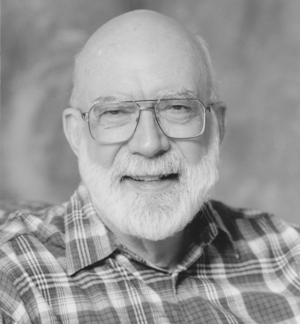Michael Harner facts for kids
Quick facts for kids
Michael Harner
|
|
|---|---|
 |
|
| Born | April 27, 1929 |
| Died | February 3, 2018 (aged 88) |
| Occupation | Anthropologist, educator and author |
Michael James Harner (born April 27, 1929, died February 3, 2018) was an anthropologist, a teacher, and an author. He is best known for his 1980 book, The Way of the Shaman: a Guide to Power and Healing. This book helped make Core shamanism popular. Core shamanism is a way for people to explore personal growth. Harner also started the Foundation for Shamanic Studies.
Michael Harner's Career
Michael Harner was born in Washington, D.C. in 1929. He first worked in archaeology, studying areas like the Lower Colorado River. As a student in 1956-1957, he traveled to the Amazon rainforest. There, he studied the Jívaro (Shuar) people of Ecuador. This experience led him to become an ethnologist, someone who studies different cultures.
His research became a book called The Jívaro: People of the Sacred Waterfalls. Later, Harner taught at important universities. These included UC-Berkeley, Yale University, and Columbia University. In 1970, he joined The New School for Social Research in New York City. He also helped lead the Anthropology Section of the New York Academy of Sciences.
In 1983, Harner created the Center for Shamanic Studies. This center is now known as the Foundation for Shamanic Studies. By 1987, Harner left his teaching job. He decided to work full-time for the Foundation. He passed away on February 3, 2018, at 88 years old.
What is Core Shamanism?
After his trips to the Amazon, Harner began trying out different practices. He experimented with steady, rhythmic drumming. In the early 1970s, he started teaching workshops to small groups. In 1979, he founded the Center for Shamanic Studies in Norwalk, Connecticut.
In 1980, Harner published The Way of the Shaman. In this book, he introduced his own system called "Core shamanism". He said this system was based on his experiences with shamans from the Conibo and Jívaro peoples in South America. Harner used the term "shaman" broadly. He applied it to many spiritual leaders from different cultures. He also claimed to have studied with "shamans" in North America. These included people from the Wintu, Pomo, Coast Salish, and Lakota people. However, he did not name specific individuals or communities.
Harner believed he was finding common practices among Indigenous people worldwide. He tried to remove specific cultural details from these practices. This was so they could be used by people in Western societies. He also mentioned influences from Siberian, Mexican, Guatemalan, and Australian traditions. He even included ideas from European occultism. However, his practices are different from the traditional beliefs of these cultures. Some cultures Harner mentioned have criticized "Core shamanism." They say it does not truly represent their traditions.
People in the United States and Europe began taking his classes. He called his teachings "core shamanism." This name helped show it was different from traditional Evenk shamanism or other Indigenous practices. Many experts see Harner's core shamanism as a main influence on the Neoshamanic movement.
Harner later made his Center for Shamanic Studies part of the nonprofit Foundation for Shamanic Studies. The Foundation received money mainly from his Core Shamanism courses. It also got support from private donations. From the 1980s, he invited some of his students to teach. This helped his teachings reach more people around the world.
See also
- Hank Wesselman
 | Mary Eliza Mahoney |
 | Susie King Taylor |
 | Ida Gray |
 | Eliza Ann Grier |

